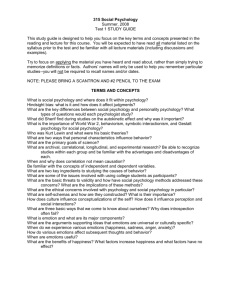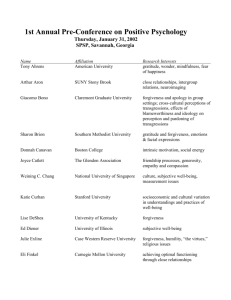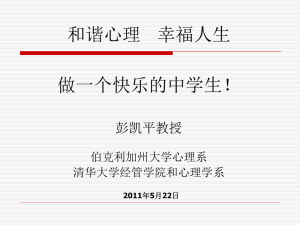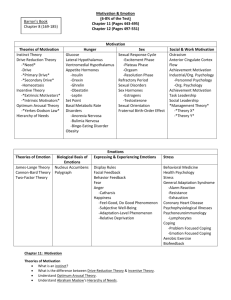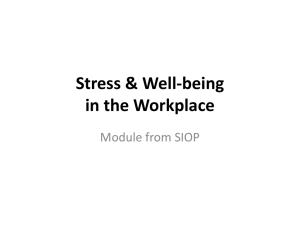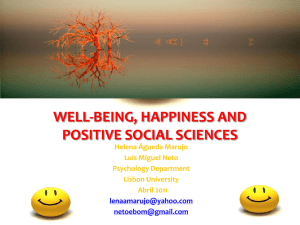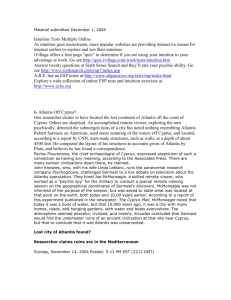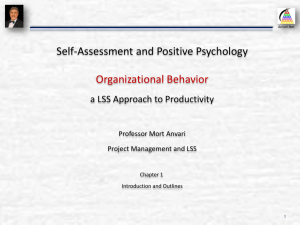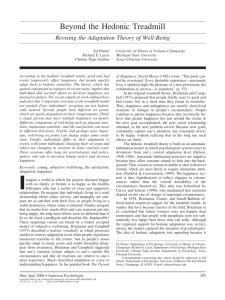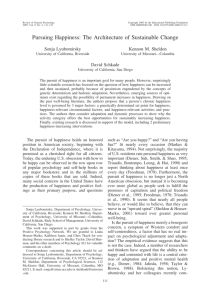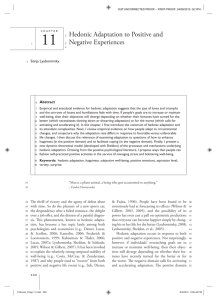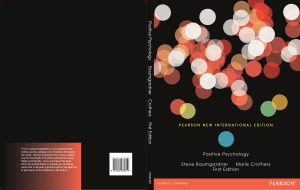“Emotions without appraisals would lack content, and emotions
advertisement
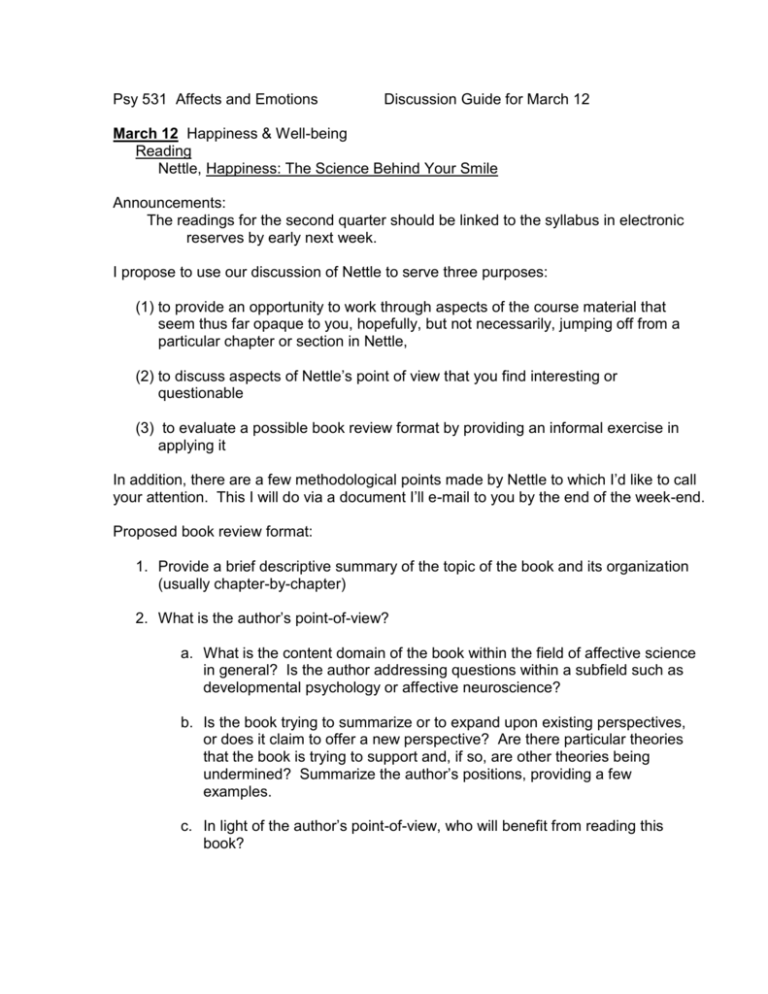
Psy 531 Affects and Emotions Discussion Guide for March 12 March 12 Happiness & Well-being Reading Nettle, Happiness: The Science Behind Your Smile Announcements: The readings for the second quarter should be linked to the syllabus in electronic reserves by early next week. I propose to use our discussion of Nettle to serve three purposes: (1) to provide an opportunity to work through aspects of the course material that seem thus far opaque to you, hopefully, but not necessarily, jumping off from a particular chapter or section in Nettle, (2) to discuss aspects of Nettle’s point of view that you find interesting or questionable (3) to evaluate a possible book review format by providing an informal exercise in applying it In addition, there are a few methodological points made by Nettle to which I’d like to call your attention. This I will do via a document I’ll e-mail to you by the end of the week-end. Proposed book review format: 1. Provide a brief descriptive summary of the topic of the book and its organization (usually chapter-by-chapter) 2. What is the author’s point-of-view? a. What is the content domain of the book within the field of affective science in general? Is the author addressing questions within a subfield such as developmental psychology or affective neuroscience? b. Is the book trying to summarize or to expand upon existing perspectives, or does it claim to offer a new perspective? Are there particular theories that the book is trying to support and, if so, are other theories being undermined? Summarize the author’s positions, providing a few examples. c. In light of the author’s point-of-view, who will benefit from reading this book? Psy 531 Reading and Discussion Guide for March 12 2 3. is the book well-written? Are there arguments you think particularly well made? Arguments that need more thought? 4. At what level is this book written, i.e., must one have a certain level of background knowledge? Particular interests? 5. Overall, summarize a few important things you learned from reading this book. &&&&&&&&&&&&&&&&&&&&&&&&&&&&&&&&&&&&&&&&&&&&&&&&&&&&& Suggested reading on happiness and life satisfaction: Averill, J.R. & More, T.A. (2000). Happiness. In Handbook of Emotions, 2nd Ed., Lewis, M. & Haviland-Jones, J.M. (Eds), Guilford Press, pp. 663-676. (LR) Berenbaum, H. (2002). Varieties of joy-related pleasurable activities and feelings, Cognition & Emotion, 16(4), 273-294. DeNeve, K.M. & Cooper, H. (1998). The happy personality: A meta-analysis of 137 personality traits and subjective well-being. Psychological Bulletin, 124, 197-229. Diener, E. & Lucas, R.E. (2000). Subjective emotional well-being. In Handbook of Emotions, 2nd Ed., Lewis, M. & Haviland-Jones, J.M. (Eds), Guilford Press, pp. 325-337. (LR) Ekman, P, Davidson, R.J., Ricard, M. & Wallace, B.A. (2005). Buddhist and psychological perspectives on emotions and well-being, Current Directions in Psychological Science, 14(2), 59-63. Fredrickson, Barbara L. (2003). The value of positive emotions. American Scientist, 91 (July/Aug), 330-335. Fredrickson, B.L. & Branigan, C. (2005). Positive emotions broaden the scope of attention and thought-action repertoires, Cognition & Emotion, 19(3), 313-332. Fredrickson, B.L. & Joiner, T. (2002). Positive emotions trigger upward spirals toward emotional well-being, Psychological Science, 13, 172-175. Kahneman, D., Diener, E., Schwarz, N. (1999). Well-Being: The Foundations of Hedonic Psychology, NY: Russell Sage Foundation. Kahneman, D. et al. (2004). A survey method for characterizing daily life experience: the day reconstruction method, Science, 306, 1776-1780. Lyubomirsky, S. (2001). Why are some people happier than others? The role of cognitive and motivational processes in well-being. American Psychologist, 56, 239-249. Shmotkin, D. (2005). Happiness in the face of adversity: reformulating the dynamic and modular bases of subjective well-being, Review of General Psychology, 9(4), 291-325. Special issue on “Happiness, Excellence, and Optimal Human Functioning,” American Psychologist, 55(1), 2000. Special issue on “Pleasure” Cognition & Emotion, 17(2), 2003. Special issue on “Positive Psychology,” Review of General Psychology, 9(2), 2005, especially introduction by Simonton & Baumeister (Positive Psychology at the summit); article by Gable & Haidt (What – and why – is positive psychology) Tugade, M.M. & Fredrickson, B.L. (2004). Resilient individuals use positive emotions to bounce back from negative emotional experiences, Journal of Personality & Social Psychology, 86(2), 320-333,
